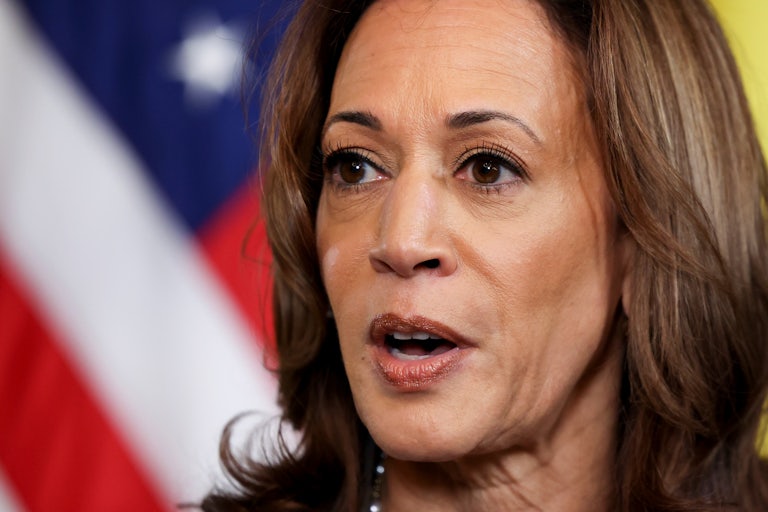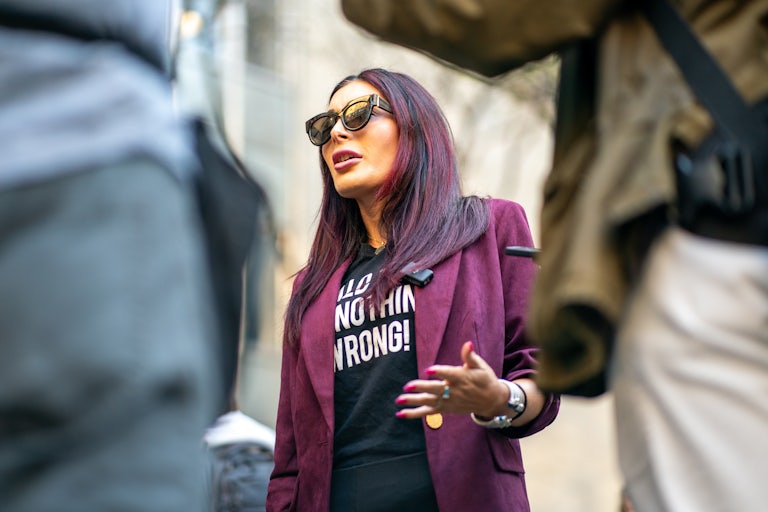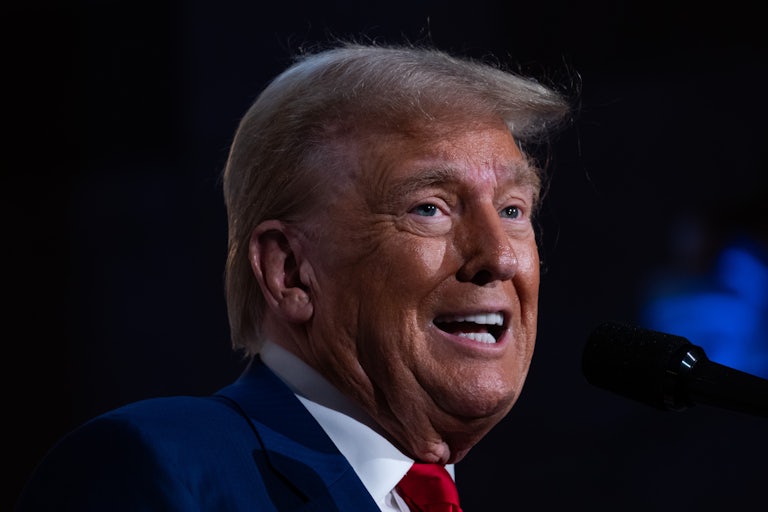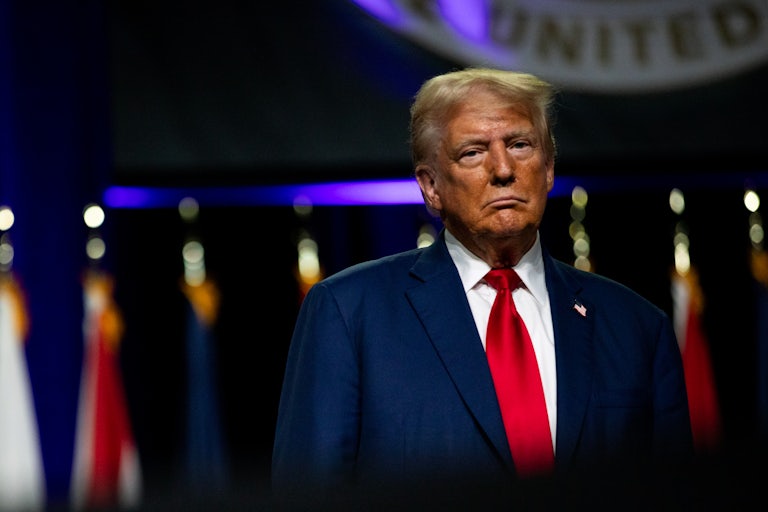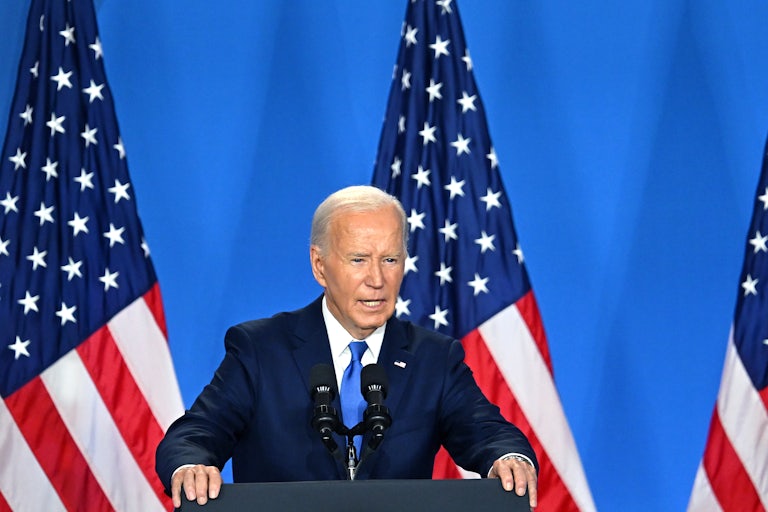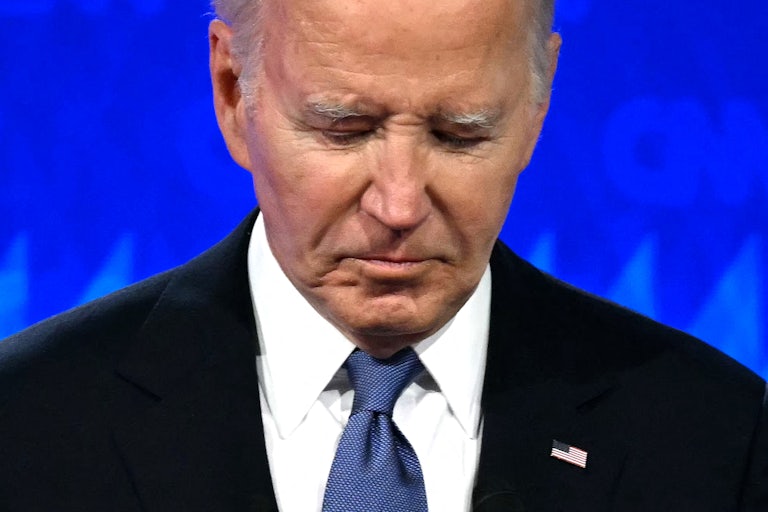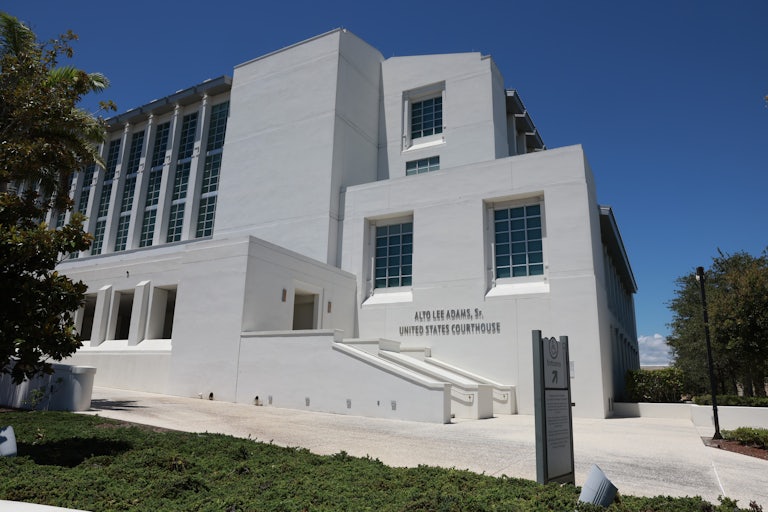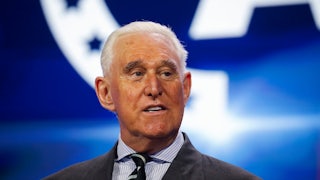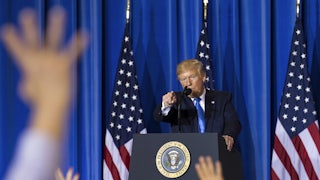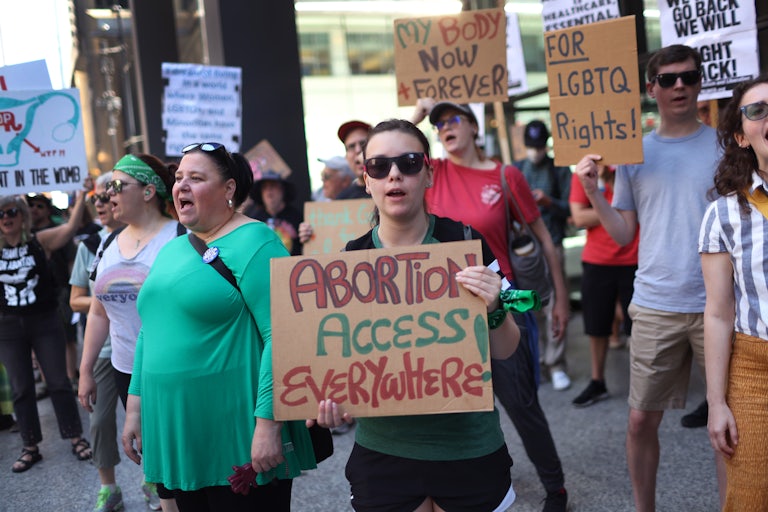Good for Liz Cheney. Now Where Are Mitt Romney and George W. Bush?
Do we love Cheney? Of course not. But that’s hardly the point. The point is, can she move votes?
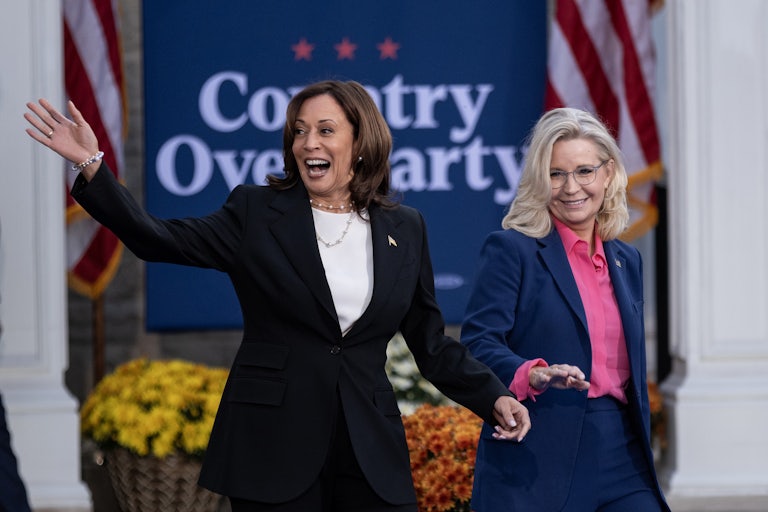
If you know anything about the founding and history of the Republican Party, the symbolism of Thursday’s event where Liz Cheney appeared with Kamala Harris had to get your attention. This party that has descended into antidemocratic neofascism was founded in 1854 as a progressive beacon. The Whig Party was dissolving and split into anti- and pro-slavery factions. The Free Soil Party was well intentioned but small. But when the antislavery Whigs and the Free Soilers got together, then they had some numbers and some power. Within six years, they elected not just a president but the most courageous and consequential president in American history (yes, FDR is a close second in my book).
It all started in a schoolhouse in Ripon, Wisconsin, which sits less than a mile away from where Cheney appeared with Harris. Is Cheney a “Lincoln Republican”? In one sense, she’s not even close. Lincoln was a liberal. In addition to ending slavery, he made public universities possible and created the national railroad system. He levied the country’s first income tax, to pay for the Civil War. He was way too big-government for Liz.
But in another sense, yes, she is, because at least she believes in the union, the republic, and the Constitution. By the benighted current standards of her party, that earns her a gold star.
Do liberals love Liz Cheney? Of course not. Nor should we. She’s a super-hawkish neocon. She defended torture. There’s a reason she was ascending the ladder of GOP House leadership in the 2010s. Yes, she had a pedigree, but also, she was totally fine with everything the GOP stood for.
But then Trump happened, and she stood up to say no. That did take some guts, in that authoritarian party. It unambiguously cost her her career, as she surely knew it would. And now she’s talking about the “depraved cruelty” of Donald Trump and endorsing a Democrat. And it’s not as if Harris promised her anything—that she’d bomb Iran or whatever. Cheney did this because Harris “will be a president who will defend the rule of law.”
Will it matter? I think so, and so does Ben Wikler, the chairman of the Wisconsin Democratic Party and one of the best state party chairs in the country. On MSNBC Thursday night, Wikler identified two groups of voters who might be influenced by this endorsement.
The first group is low-information uncommitted voters. He used a great analogy to describe these people. “These are people,” he told Jen Psaki, “who think about politics the way you and I think about the javelin at the Olympics, which is something that we’re vaguely aware happens every four years, but it’s not something we’re seeking out.” Yes, there are such people. For these voters, Wikler said, “just hearing that Democrats and Republicans are all agreeing that Kamala Harris is the person” might matter.
His second group was more interesting. It consists of “highly engaged” Republicans whose first loyalty is not to Trump but to “the flag and the Constitution.” Cheney’s move shows these people that “you can be yourself with your conservative commitments” and vote for a Democrat.
How many such people are there? A lot. Let’s start with the fact that Nikki Haley got nearly 4.4 million votes in the primaries. That was 20 percent of the total number of votes cast. Now let’s extrapolate that out to a November electorate. In 2020, around 155 million people voted. According to CNN exit polls, 36 percent were Republican, or around 56 million.
And 20 percent of 56 million—that is, the extrapolated Haley vote—makes for a potential pool of anti-Trump Republicans of around 11 million. Now, most of them may not bother to vote, or will write in Ronald Reagan or whomever. But surely Cheney’s backing will help convince some of them that voting for Harris is all right. And if you throw in Republican-leaning independents, that pool grows by maybe another 20 million.
If Harris can harvest votes from these people while promising nothing more than that she isn’t Donald Trump and will defend the Constitution, why shouldn’t she? I’m for as many Republican endorsements of Harris as possible. Aside from signaling a green light to Republican voters, it’ll drive Trump up a wall.
The list of Harris’s GOP endorsers is growing. Former Arizona Senator Jeff Flake joined the band earlier this week. Flake is respected by independent voters in his state. If he campaigns with Harris, he too could move votes.
Meanwhile, the big questions in this arena: What’s up with Mitt Romney and George W. Bush? There are others, like former Trump chief of staff John Kelly. But Romney and Bush are the big fish. What in the world does either man have to lose? Romney is retiring. Bush paints and golfs. Both are richer than Croesus. I assume both want desperately to save their party from Trumpism. Isn’t the obvious best way to do that by encouraging their fellow Republicans to vote for Harris so they can end the scourge of Trumpism and get back to being a normal, warmongering, poor-people-penalizing, planet-scorching party again?
But seriously. If they were to back Harris, and Harris wins semi-convincingly with something like 15 percent of the Republican vote (around half that is normal), Trump will be finished. Not Trumpism. That will take a lot longer.
People like Romney and Bush should consider their place in history. In these next few years, the Republican Party will either corrupt itself beyond repair and crumble into out-and-out fascism, becoming the vehicle that ended the human race’s longest-lasting democratic experiment, or it will finally cast that off and begin to resurrect itself. Do they want to be among those who sat by and let the former happen or those who helped the latter take place? There’s a little schoolhouse in Ripon, Wisconsin, they might visit for inspiration.

